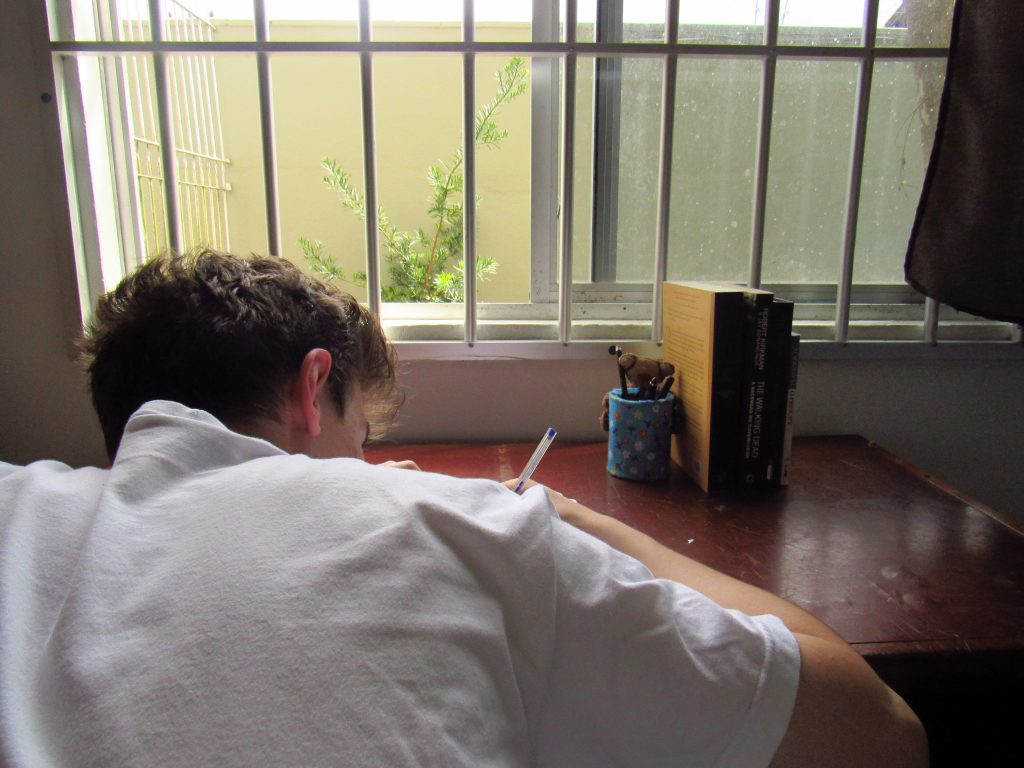As we mark World Book Day, Lisa Krolak highlights the transformative potential of creative writing in the prison context

On World Book Day 2021, the German Prison Library Support Group (Förderverein Gefängnisbüchereien e.V.), in cooperation with the UNESCO Institute for Lifelong Learning (UIL), the Ministry of Justice of the German State of North Rhine-Westphalia and the German reading project KonTEXT in Munich, implemented its first nationwide writing contest for prisoners. They were invited to write up to three pages on one or more of the following topics: life, freedom or hope. In the following months, prisoners submitted personal reflections, autobiographical writings, fiction, poetry, accounts of traumatic experiences, song texts, and more.
I was part of the small organizing committee and jury, reading and judging the nearly 400 entries from more than 300 inmates from 80 prisons and five juvenile detention centres from all over Germany. I can say for the whole jury that we were deeply touched by the contributions. Some made us laugh, some made us cry – but they all gave us an insight into the hopes, feelings and dreams of the authors and the reality of life in prison. We are grateful to the authors for sharing their life experiences, thoughts of freedom and hopes. It was moving to hear the silenced voices of people that society decided to lock away.
Ten winners were unveiled during a ceremony at Bochum prison in North Rhine-Westphalia, on the occasion of Germany’s National Reading Aloud Day on 19 November 2021. A special award was given to a prisoner in juvenile detention. The 11 winners received a small monetary prize, while the libraries of their institutions were presented with media packages.
What is really important in life
The contributors highlighted what they considered to be really important in life; simple things such as enjoying nature by going to the beach, walking in a park or forest, running through a field or listening to a bird singing.
Several mentioned the importance of family and friends and the desire to find a person who accepts them as they are. As one participant mentioned: ‘For me, it was always normal to meet my family, to kiss my partner and to have friends with whom you can share problems … you have to enjoy every second of it.’
Some said that they could have easily written more, noting how much they enjoyed writing about their personal experiences and how writing helped them to get over a very difficult period in life. One commented: ‘Too bad that we are just allowed to write three pages … I could have easily written 1,000 pages.’ Another said: ‘Thank you for this wonderful idea and initiative. Since I started writing in my cell, it feels like writing a diary and it is the first time for a long time that I have enjoyed something again.’
The benefits of creative writing
As these examples suggest, creative writing can benefit individuals of any age by increasing their self-awareness and their ability to discuss thoughts and feelings. It represents a powerful transformative tool for personal development in the prison environment. Often, such creative writing programmes offer crucial learning support to prisoners, who are more likely than the rest of society to have had limited, and maybe even negative educational experiences, including difficulties with reading and writing. It can be safely assumed that a large proportion of participants were not active writers before.
We hoped that the writing contest would allow prisoners to forget for a time the harsh reality of prison life. Being confronted with a situation of solitary confinement and plenty of time, the writing contest had the potential to open the door to new learning experiences.
Reading the stories, we sometimes wondered about the person behind the story. Some stories concerned traumatic experiences, some of them hinting at why some of the authors ended up in prison. The winning contribution is such an example.
As a jury we were overwhelmed by the many contributions that we received. But what really surprised us was the creativity of the contributions and the literary quality of many of them. Different jurors had different preferences, reflecting their own backgrounds and interests. It proved impossible to select the best five entries. In the end, we awarded prizes to 11 entries and selected about 40 contributions for an upcoming publication, which will be published in German later this year.
The human being behind a number
The contest reminded us of the human being behind the prisoner’s number. This thought is reflected in a thank you note that reached us after the contest. It was written by a participant, who in his awarded contribution highlighted the healing potential of reading and prison libraries. His thank you note ended with the words:
I often watch reports about people on a one-week mobile phone detox, and how hard it is for them. Here, we spend years detoxing from mobile phones, streaming services, computers, Wikipedia, the internet, love, relationships, alcohol, cars, walks, laptops, family and freedom. You’d be hard-pressed to find a lonelier existence. Even if I moved to the wilds to live as a hermit, I’d be freer. In here, books open up new worlds. They dispel the notion that we’re just numbers. Because numbers can’t read, write, dream or hope; the things that preserve our human dignity while we’re on the inside. We’re human beings, and we’re grateful to all the people, men and women, who support prison libraries. Thank you.
Lisa Krolak is the UIL Library’s Chief Librarian. This blog is based on her personal experience during the writing contest and her research for writing UIL Policy Brief 11, How prison libraries support rehabilitation efforts (UIL, May 2020) and the UIL publication, Books beyond Bars: The transformative potential of prison libraries (UIL, August 2019).
